#Russian history
Text

Soviet New Year tree lights, 1960s.
#russia#russian#soviet aesthetic#ussr#soviet#soviet union#russian history#sovietwave#1960s aesthetic#1960s
3K notes
·
View notes
Text
The State Department just published a 51 page report detailing over a century's worth of Russia's exploitation of antisemitism as a tactic to spread disinformation and propaganda
#jumblr#jewish#nesyapost#jews#jewish history#antisemitism#Russian History#Russian antisemitism#Russian jews#soviet jews#history#pdf download#propaganda#Ukraine war#can't wait to dive into this
1K notes
·
View notes
Text

Patron Saint of One Way Trips (2024)
24x36
Acrylic on Wood
#my art#illustration#painting#Laika#russia#Russian history#space race#laika art#1960s#My sweet girl#eclipse
412 notes
·
View notes
Text
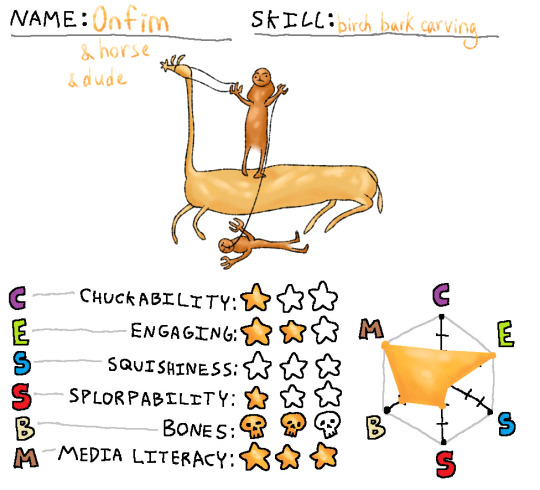
thought abt this a lot yesterday
@littleguysdaily (is it ok to tag??)
the unsurpassed original
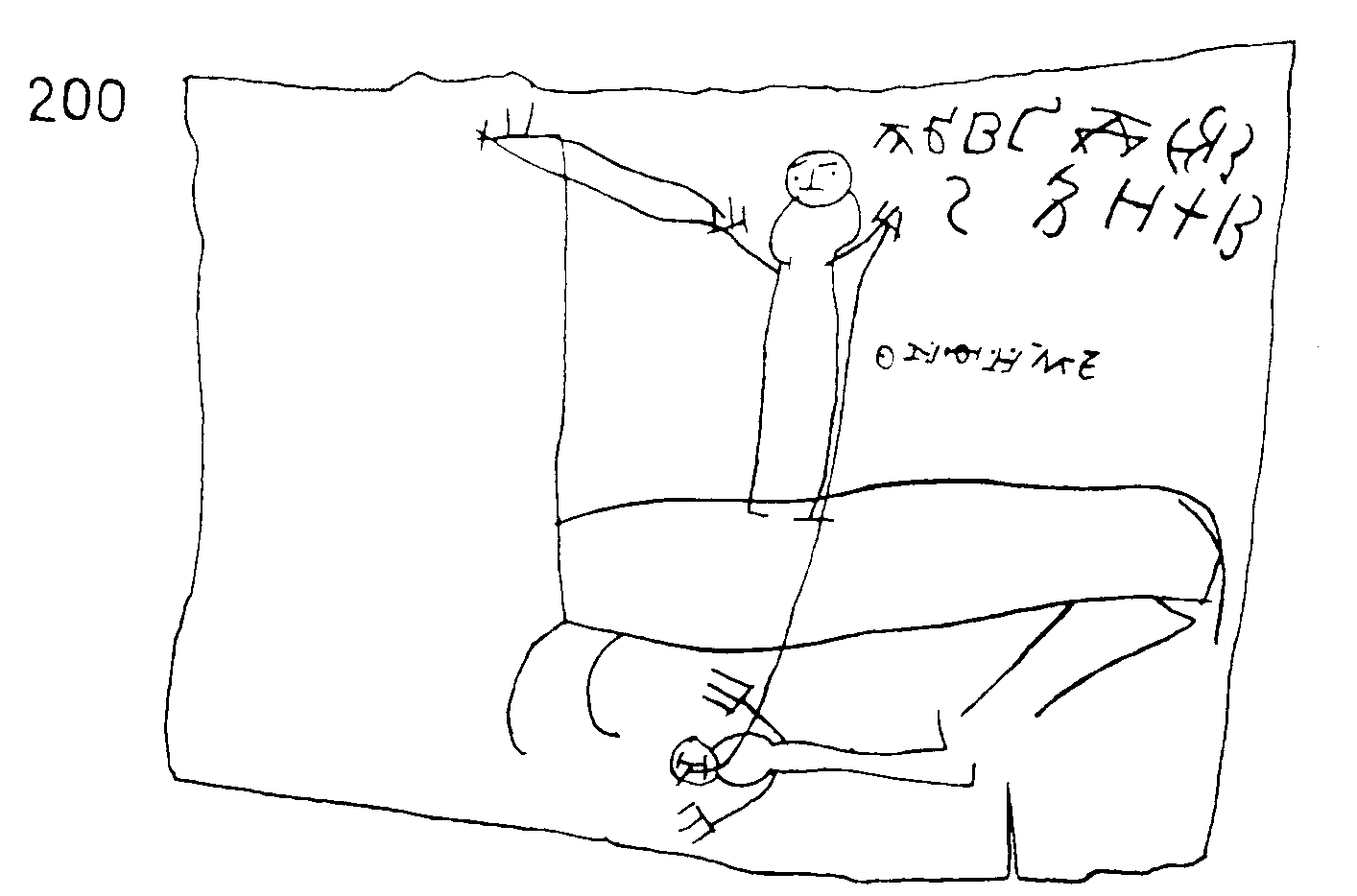
241 notes
·
View notes
Text
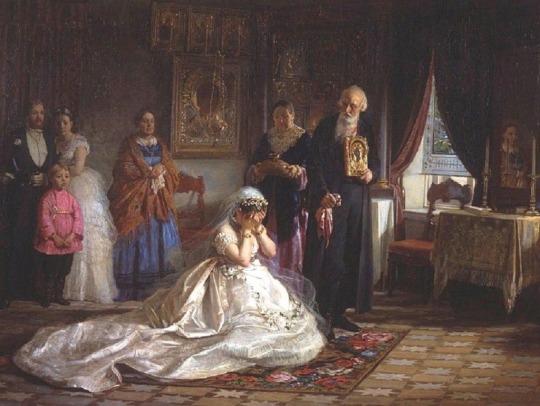
Before the Wedding, Firs Zhuravlyov. 1870s.
#aesthetic#art#art history#fashion#historical fashion#historical art#women in art#women#victorian#victorian aesthetic#1870s#1870s aesthetic#genre painting#Russian art#Russian history#imperial Russia#wedding#genre#wedding art#red#red aesthetic#1870s wedding#1870s dress#1870s gown
307 notes
·
View notes
Text

Patrick Stewart as Vladimir Lenin in "Fall of Eagles" (1974)
548 notes
·
View notes
Text
happy 89th birthday to Boris Volynov !! he is the last of the first cosmonauts and the first jewish person to go in space as well as one of my favorite cosmonauts (with yuri gagarin, sigmund jähn, arnaldo tamayo and valeri bykovski) and a great inspiration since i was little !!
💙🌌🚀✡️👨🏻🚀💙
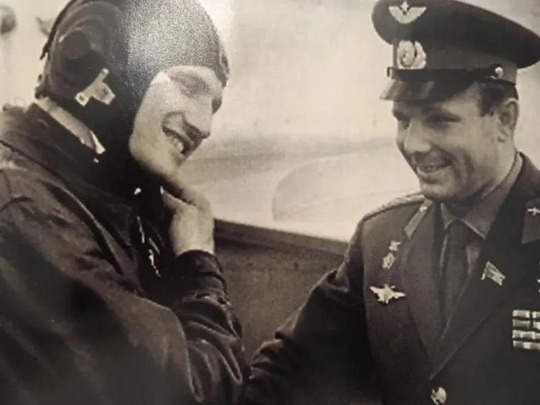




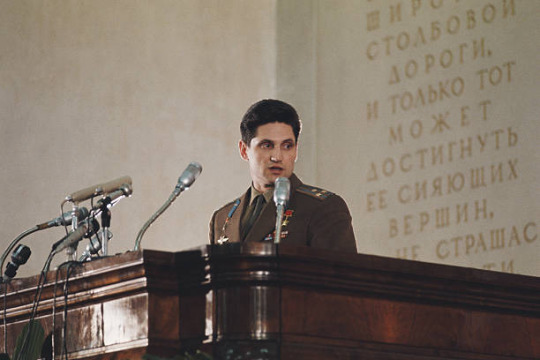


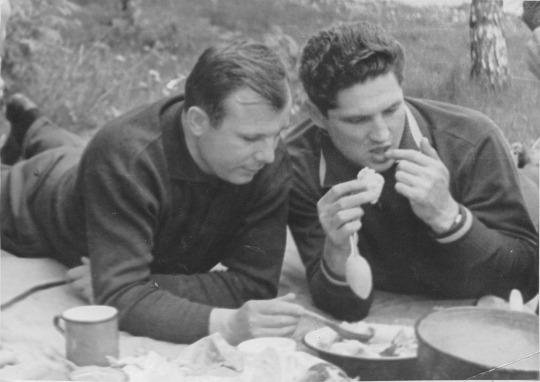

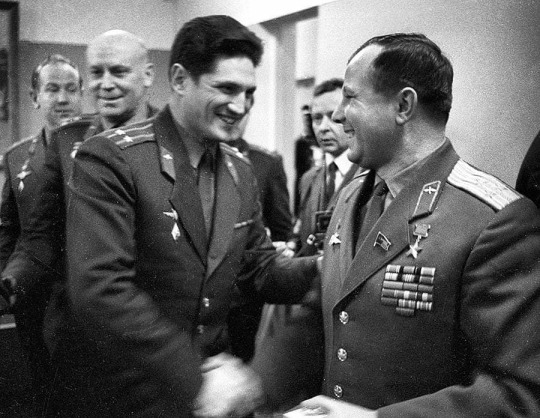
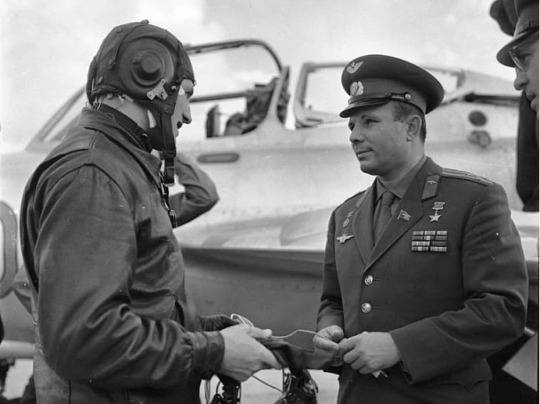
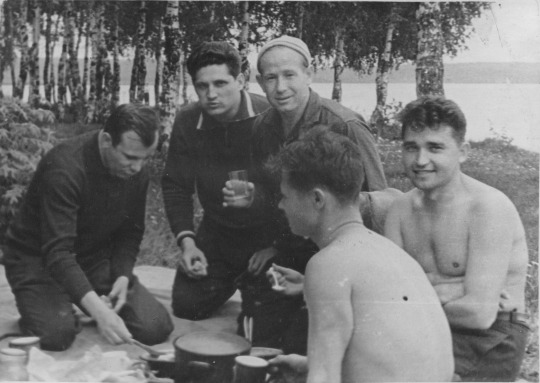
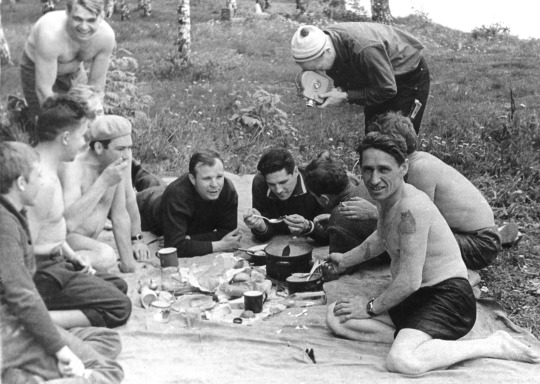
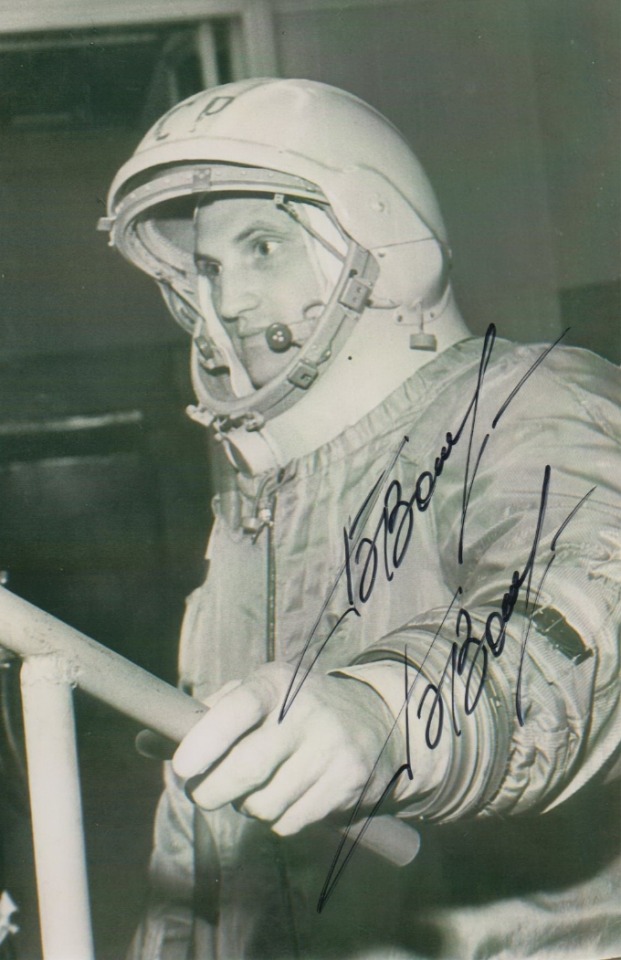

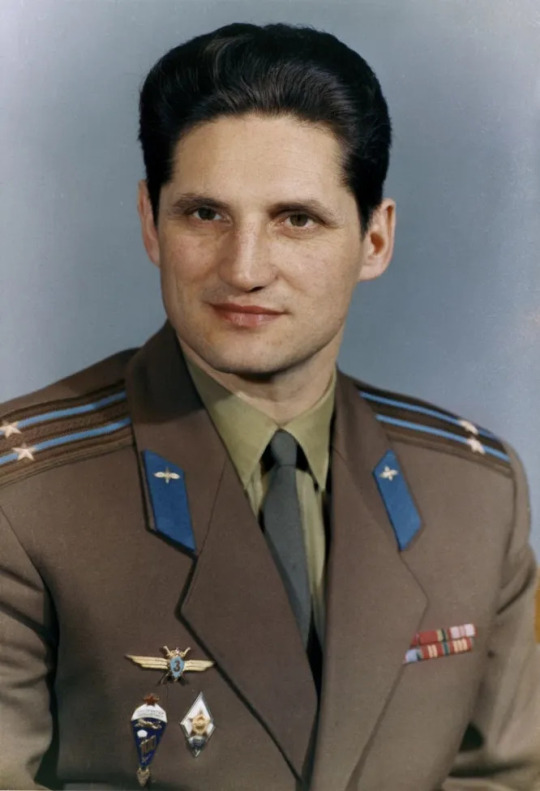






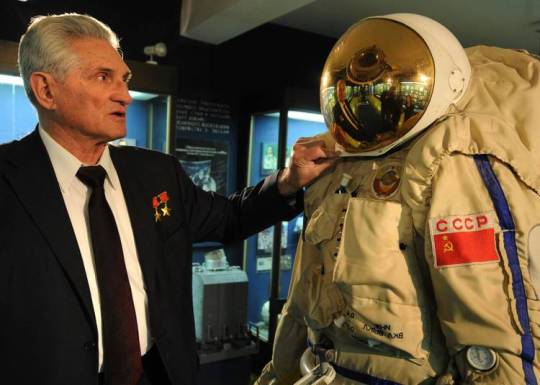
#boris volynov#sophia talks#personal#cosmonaut#urss#ussr#ussr history#soviet union#jewish stuff#jewish history#jewish#judaism#jumblr#jewblr#jewish culture#astronaut#spationaut#russian history#bref jewish men >>>#Борис Волынов#jews in space
228 notes
·
View notes
Text
On This Day In History
November 3rd, 1957: The Soviet Union launches Sputnik 2 into orbit, carrying Laika, the first living animal in space.

[a black-and-white picture of Laika, a medium-sized mutt, wearing a harness].
2K notes
·
View notes
Note
Man, the Russia/Ukraine war has led to a lot of terrible takes from far leftists. I have a mutual from Brazil, a self identified socialist, who is convinced that Ukraine is full of nazis. While they don't support Russia, they questioned why they have to be "pro-Ukraine" or "pro-Russia". They call Ukraine a "nazi hole" but call Russia merely "fascist". Am I wrong in thinking that they've been influenced by Russian propaganda? I know Ukraine does have a nazi/far right problem, but so does the US? And most European countries? idk they strongly hate the US/US government too, and it seems to create some kind of brainrot. at least they don't blindly support China or Russia like tankies do (nor identify with them), but it's still frustrating to take a neutral position on a pretty black and white situation.
I don't want to confront them 1) cause I'm not the type to argue over serious things like this and this may break our long friendship and 2) I'm not super educated on the nazi situation in Ukraine.
Anyway thank you for letting me rant in your inbox.
Yes, Russia has specifically focused its propaganda efforts on Latin America, Africa, and other regions that HAVE suffered from Western/European/American imperialism and are thus predisposed to take the worst view of them/believe that this situation is their fault somehow. This is similar to what the USSR did in newly postcolonial Africa in the 1960s and 1970s, positing themselves as offering the shared hand of communist brotherhood from Western oppressors. Because of more recent events like the invasion of Iraq, which was fully as unjustified as the invasion of Ukraine, Russian propagandists and their eager tankie/leftist foot soldiers have also got a lot of mileage out of "whataboutism." This is likewise an old Soviet propaganda technique designed to deflect any criticism of the actual situation by disingenuously asking "what about this other one!!!"
Likewise, the idea that Ukraine has a "Nazi problem" is itself propaganda. In the last election, far-right/Nazi-identified parties won barely 2% of the vote and AFAIK, no seats at all in the Verkhovna Rada (Ukrainian parliament). This is far lower than the nearly half of the USA voting for the far-right/Nazi-sympathetic Republican Party, and as noted, the far right elements in the UK and Europe. The idea that Ukraine is "full of Nazis" (with a Jewish president who just celebrated iftar with the Ukrainian Muslims/Crimean Tatars during Ramadan and instituted observance of Muslim holidays nationwide, very Nazi of him) is a line used by Russian propagandists to "justify" their attack and appeal to national memories of the Great Patriotic War (World War II) and the struggle against the Nazis, which is the central cultural grievance/memory in modern Russia. The Putin regime has referred to anyone they don't like, but especially the Ukrainians, as "Nazis" for a long time now, so it's supposedly their holy duty to kill them/commit ethnic cleansing/forcibly reunite the "fraternal" people of "Little Russia," as Ukraine has been called since the 17th century, with "Great Russia." And yeah, no.
Because the West and Europe has been pretty solidly on Ukraine's side, Russia has therefore cultivated countries like China, India, Brazil, etc, who have all suffered from Western interference and are looking to move into the first rank of global superpowers. This is, as noted, similar to the competing systems of influence built during the Cold War, but it also relies on much deeper Russian grievances that go back to the medieval era. Anybody who knows a thing about actual Russian history would therefore know that every single word it says about the Ukraine situation is a lie, but because that lie is useful for many other countries and fits into their own understanding of themselves, it is easy to repeat and act like it's a so-called superior moral position. This is also why US/American tankies so eagerly lap up Russian propaganda, because it plays into their moral sense of themselves as far better than the rest of the West and "righteously" discovering that the West is responsible for all the evil in the world etc etc. While non-Westerners are just helpless misunderstood puppets with no real agency or ability to make complex choices. This totally makes sense!!!
#anonymous#ask#russia ukraine war#russian history#as ever tankies are the fucking absolute worst and wrong about everything
666 notes
·
View notes
Photo
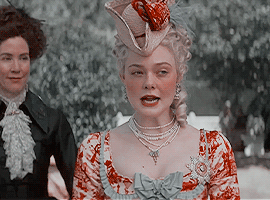
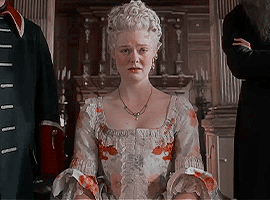


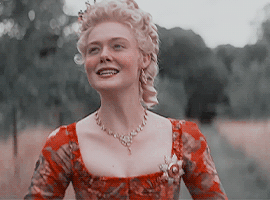

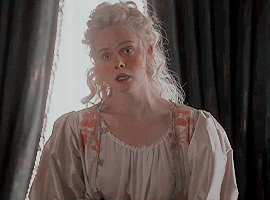
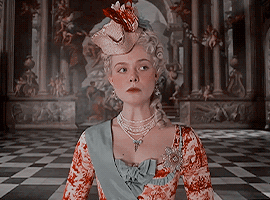
↳ catherine the great in ‘the great’ season 3 trailer (2023)
#catherine the great#catherine ii of russia#the great#the great season 3#russian history#house romanov#elle fanning#history#*thegreat#historyedit#my gifs#creations*
648 notes
·
View notes
Text


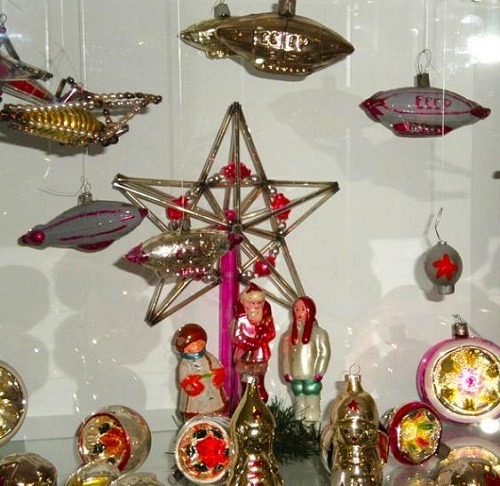

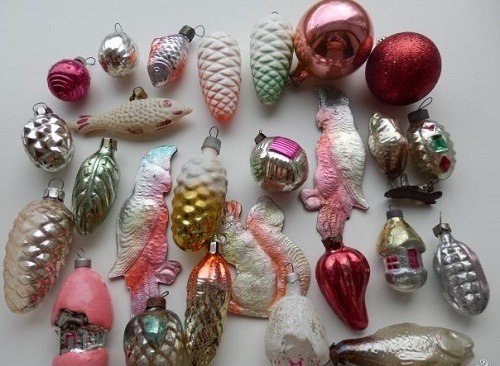
Soviet tree decorations c.1930s - 80s.
684 notes
·
View notes
Text
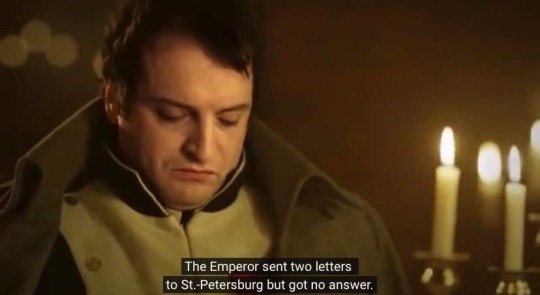
Tsar Alexander leaving Napoleon on read. Couldn’t be me.
#lol#tsar alexander i#napoleon#napoleon bonaparte#napoleonic era#napoleonic#Alexander I#first french empire#19th century#french empire#history#french history#russian history#imperial Russia
248 notes
·
View notes
Text
I wish more people read. Of course there were citizens within the USSR who despised Stalin and the CPSU and even called for their deaths, however this was a minority and often those who opposed the CPSU sympathized with either the Tsar or unfortunately Hitler, claiming that Hitler would liberate them.
Stalin and the CPSU enjoyed a majority of support from the citizens much to the chagrin of Liberals. Those who sympathized with Stalin and the CPSU often cited women's and national minority rights, worker protections and benefits, improving healthcare and nutrition and overwhelmingly access to education as reasons for their support. Those who were in opposition cited issues such as lack of consumer goods, lack of variety of consumer goods, unfair economic practices (such as welfare for the very poorest), the State's atheist sentiments, and the expansion of rights to national minorities including (and especially) the Jewish population.
Many Liberals will rush to defend fascism in a heartbeat either without realizing it (which is no excuse) or by lying to themselves as Fascism is preferable to Communism for them.
References :
"Popular Opinion in Stalin's Russia" by S. Davies
"Stalin's Constitution" by S. Lomb
"Life and Terror in Stalin's Russia" by R. Thurston
#leftism#anti capitalism#socialism#anarchy#stalin#russia#ussr#communism#lenin#soviet union#ussr history#world history#russian history#soviet#uss resolute#fuck the ussr#marxism#anti imperialism#marxism leninism#left is best#twitter post#leftist#policy#communist#anarchism#anarchocommunism#liberals#liberalism#woke liberal madness#liberal hypocrisy
348 notes
·
View notes
Text
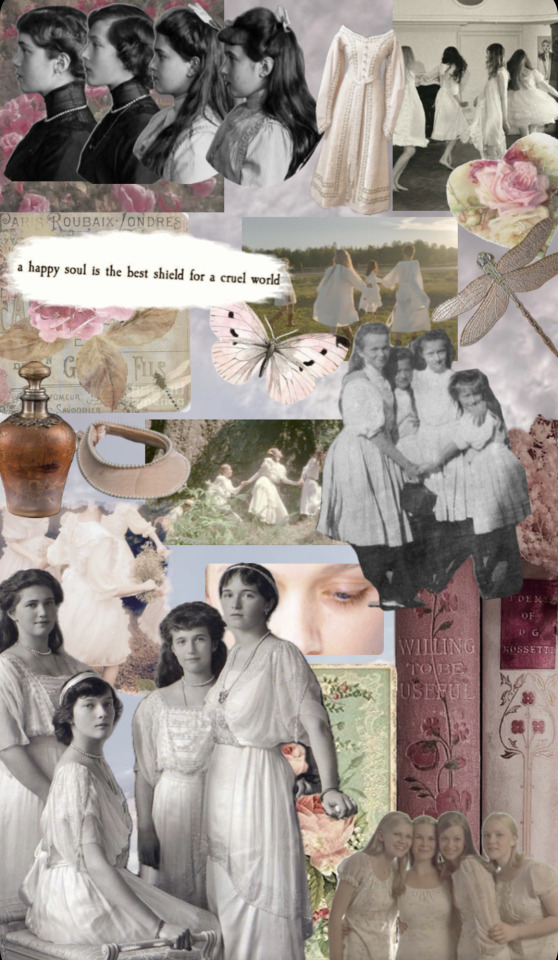
~ ♔ ꧁ OTMA ꧂ ♔ ~
❧ “In the darkness of the mystery which surrounds the fate of these innocent children it is with poignant emotion that I recall them as they appeared, so full of life and joy, in those distant, yet incredibly near, days before the World War and the downfall of Imperial Russia.”
❧ “Olga was perhaps the cleverest of them all, her mind being so quick to grasp ideas, so absorbent of knowledge that she learned almost without application or close study. Her chief characteristics, I should say, were a strong will and a singularly straightfor, ward habit of thought and action.”
❧ “Tatiana was almost a perfect reincarnation of her mother. Taller and slenderer than her sisters, she had the soft, refined features and the gentle, reserved manners of her English ancestry. Kindly and sympathetic of disposition, she displayed towards her younger sisters and her brother such a protecting spirit that they, in fun, nicknamed her "the governess."
❧ “Marie had splendid eyes and rose-red cheeks. She was inclined to be stout and she had rather thick lips which detracted a little from her beauty. Marie had a naturally sweet disposition and a very good mind.”
❧ “Anastasia, a sharp and clever child, was a very monkey for jokes, some of them at times almost too practical for the enjoyment of others. I remember once when the family was in their Polish estate in winter the children were amusing themselves at snowballing. The imp which sometimes seemed to possess Anastasia led her to throw a stone rolled in a snowball straight at her dearly loved sister Tatiana. The missile struck the poor girl fairly in the face with such force that she fell senseless to the ground. The grief and horror of Anastasia lasted for many days and permanently cured her of her worst propensities to practical jokes.”
- Anna Vyrubova (friend and personal confidante of Empress Alexandra Feodorovna)
#💗🤍#OTMA#olga nikolaevna#maria nikolaevna#tatiana nikolaevna#anastasia nikolaevna#romanov#romanovs#my edit#mine#made by me#Romanov edit#russian imperial family#russian history#shuffles#shuffles edit#grand duchesses#grand duchess Olga#grand duchess tatiana#grand duchess maria#grand duchess Anastasia#Anastasia#Anna Vyrubova#diaries and letters#quotes#wallpaper
84 notes
·
View notes
Text
Portrait of Leonilla
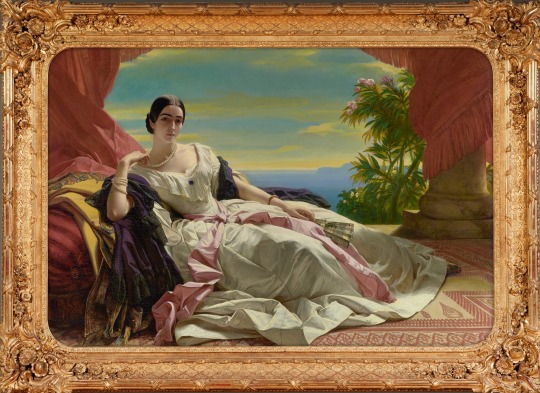
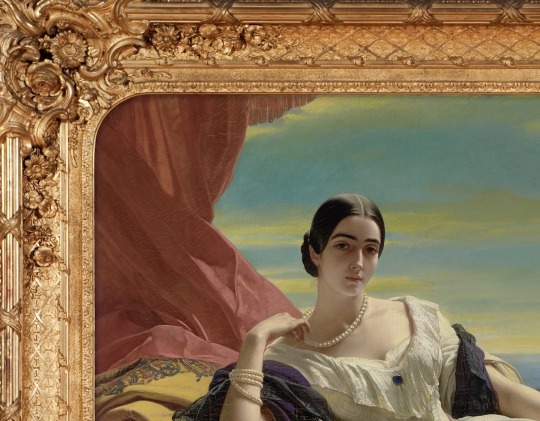

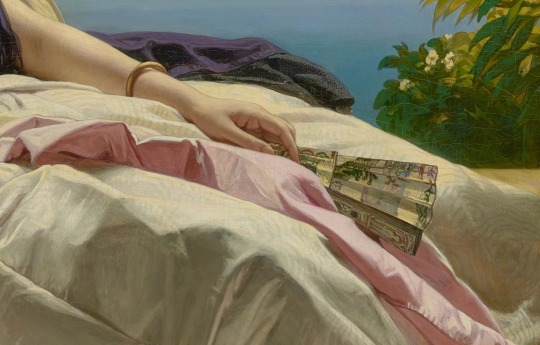
Franz Xaver Winterhalter (German, 1805 - 1873) Portrait of Leonilla, Princess of Sayn-Wittgenstein-Sayn, 1843 The J. Paul Getty Museum, Los Angeles, 86.PA.534
#art#artwork#art history#artist#paint#painting#art detail#franz xaver winterhalter#royalty#princess#neoclassicism#neoclassical#19th century art#portrait#oil on canvas#oilpainting#russian history
167 notes
·
View notes
Text
Anastasia's personality
Lesser known quotes about Anastasia Nikolaevna Romanov and her personality, from those who knew her and from Anastasia herself!
Happy reading :)
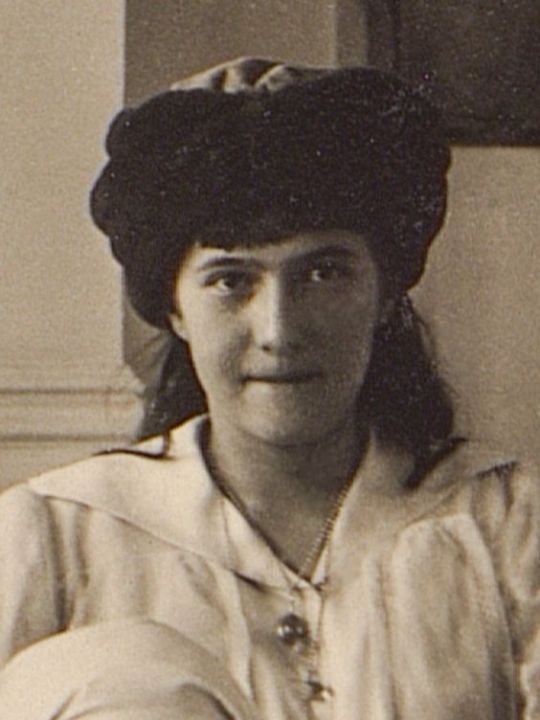
"Once they had seen this demonstration [of security dogs sniffing out objects], the Grand Duchesses often amused themselves by hiding objects on the island, and asking us to have them retrieved by the dogs. That was, above all, the favourite game of the youngest of the Grand Duchesses, Anastasia Nicholaievna. So the guide asked permission to take the Grand Duchess by the hand and let the dogs sniff it, who then disappeared into the island and brought back the hidden object. Of course, the Grand Duchess was hugely delighted." - Alexander Spiridovitch, Last Years at Tsarskoe Selo, Volume 1
Anastasia to tutor Pyotr Vasilievich Petrov: "Wikied P.V.P. I am very, very upsit with you. Why didn’t you write a litter to Maria and me? I’m telling you, you are very, very bad, extremely bad even. Maria and I have written you so meny letters and you haven’t replied. I am going to make mystakes on purpose. I alredy see where I made mystakes. Anastasia. 1909. 9 November." - Helen Azar, George Hawkins, Anastasia Romanov: The Tsar's Youngest Daughter Speaks Through Her Writings
"Sometimes, the Grand Duchesses would enter the thatched houses and strike up conversations with the peasant women. The male population worked far away, at fishing, Anastasia Nicholaievna made friends with an old peasant woman, whom she came to see in her thatched cottage several times, and with whom she had long conversations. The peasant was knitting a stocking, and showed the Grand Duchess how it was done. On her birthday, Anastasia Nicholaievna visited the old lady, and asked her how old she thought she was. When the old lady could not guess, the Grand Duchess announced proudly that she was eight years old!" - Alexander Spiridovitch, Last Years at Tsarskoe Selo, Volume 1
"We used to make long outings around the islands. One day, Anastasia Nicholaievna begged the Emperor to take her on one of these outings. The Emperor consented. It was a very long outing. We covered some fifteen to seventeen versts. Everybody, except the Emperor, was very tired, with Anastasia Nicholaievna at the point of tears. The people who accompanied the Emperor took turns carrying her pick-a-back [piggy back]. That outing was remembered for a long time." - Alexander Spiridovitch, Last Years at Tsarskoe Selo, Volume 1
"Anastasia Nicholaevna was a lively witty child, who developed rapidly in the midst of her sisters. Very mischievous, always gay she still amused herself with toys such as the little, stoppered bottles and pots which a doctor who visited the Imperial Family used to bring her. She and her brother got no end of fun from these things." - Alexander Spiridovitch, Last Years at Tsarskoe Selo, Volume 1
"Little Anastasie was delighted with the stir and bustle of city life and deeply interested in all she saw. The children developed a love for those little toy balloons which are sold in the streets. When they were very good I used to send out and get them one each. But Anastasie used sometimes to want me to stop the carriage and buy them from the men, and this, of course, could not be allowed. So I always said simply that I could not, without advancing any reason. She evidently thought force would have to be used to induce him to part with them, for one day she saw some little children walking on the Palace Quay, each one with a balloon. She drew my attention to them. "Look, look!" cried she; "little children with balloons; get out, take them from them and give them to me." I explained why that would not do, so she said, " Well, get out, and ask them nicely and politely, and perhaps they will give them to me."" - Margaretta Eagar, Six Years at the Russian Court
"Someone in speaking to me of the four little girls lately said to me, "...little Anastasie has personal charm beyond any child I ever saw."" - Margaretta Eagar, Six Years at the Russian Court
"I had got from England a preparation for the children's hair, and was rubbing it into little Anastasie's head one evening. She objected, and I said, " It will make your hair grow nicely, darling," so she submitted. Next evening I went to get the kappuka [solution] from the cupboard, and mademoiselle ran off into the next room. She returned dragging by its leg an awful dolly, a regular fetish, minus a wig, one eye, and an arm. She gravely took a little piece of sponge and began to rub the kappuka into the creature's head. I remonstrated, telling her I had to send to England for the stuff and did not want it wasted. She looked at me most reproachfully, and said, "My poor Vera! she has got no curls; this will make her hair grow." Of course, she got her way." - Margaretta Eagar, Six Years at the Russian Court
"Anastasia Nikolaevna was especially attracted to stores, where they sold doll shoes of various sizes…" - Sophia Ivanovna Tyutcheva, A Few Years Before the Catastrophe
Letter from Alexei to their father, Nicholas: "[22 Sept 1914] …Anastasia was throttling [tutor] M. Gilliard." This has also been translated as "…Anastasia was trying to strangle M. Gilliard" - George Hawkins, Alexei: Russia's Last Tsesarevich - Letters, diaries and writings
Letter from Alexandra to Nicholas: "Jan 6 1916 …Anastasia has bronchitis, head is heavy & hurts her swallowing, coughed in the night,, she writes about [Dr.] Ostrog.[orsky]. “Although he said that I look a little better than yesterday, but I am pale & my appearance is foolish in my view” just like the “Shvibzik” [her nickname] to say such things…" – Joseph T. Fuhrmann, Nicholas II and Alexandra Feodorovna. The complete Wartime Correspondence April 1914 – March 1917
Letter from Alexandra to either her brother or sister-in-law: "7 May 1913… Anastasia is growing gradually and is as funny as always." - Petra H. Kleinpenning, The Correspondence Of The Empress Alexandra Of Russia With Ernst Ludwig And Eleonore, Grand Duke And Duchess Of Hesse
The following are from Helen Azar, George Hawkins, Anastasia Romanov: The Tsar's Youngest Daughter Speaks Through Her Writings:
Tutor Pyotr Vasilievich Petrov to Anastasia: "12 October 1909. Hello dear, good, diligent, obedient (albeit not always), kind and affectionate (also not always?) Anastasia Nikolaevna!" - Helen Azar, George Hawkins, Anastasia Romanov: The Tsar's Youngest Daughter Speaks Through Her Writings
Anatoly Mordvinov to the Grand Duchesses: "September 19, 1915 My beloved torturers! I can’t express how pleased I was with your joint, dear, sweet letter… What terrible news, reported by my chief tormentor Anastasia Nikolaevna…"
Anastasia to Nicholas: "October 3rd [1915] …There was a psalm-reader who read so incredibly funny that it was simply impossible not to laugh"
Note from Anastasia to Alexei "…Now you, little piggy, know all the rooms…"
Letter from Anastasia to Alexei: "1 November 1915. ...My Dear and Darling Little Alexei! I haven’t forgotten my responsibility [to walk dog Joy], and every day either I or Madeleine or Tutles goes for a walk and it goes very well."
Last diary of Alexandra: "12/15 April. Marie comes with us [to Ekaterinburg], Olga will look after Baby, Tatiana the household & Anastasia will cheer all up." - Last diary of Alexandra Feodorovna
"Anastasia was not allowed to go to dinner, had to go to bed early, which was why she had dinner alone with the nanny in her giant lonely “upstairs”… So sad, these poor children live in a golden cage." - the memoirs of V. I. Chebotareva
Diary entry of the palace priest: "April 11, 1917 - …The former Heir was taken past my window in a wheelchair. Grand Duchess Anastasia Nikolaevna saw me in the window and loudly said to her mother, “Over there, the batiushka [father] is looking at us”" - Belyaev, Potapov, The Romanovs Under House Arrest: From the 1917 Diary of a Palace Priest
Letter from Maria to Nicholas: "April 1915 …The little Shvybzik [Anastasia's dog] just made a “governor” [accident] on Mama’s carpet, and Anastasia is not training him…" - Helen Azar, George Hawkins, Maria Romanov: Third Daughter of the Last Tsar, Diaries and Letters, 1908–1918
"...the most energetic and speedy - Anastasia Nikolaevna - had a rather silent, sedate and serious Navigator A.V. Saltanov [to look after her]. The latter ended up with most trouble and turmoil. Dear 'Nastasya', as the Gosudar [tsar] called her, was a trouble making tomboy. With her hair always messed up, always dishevelled, from morning till night she ran around the yacht, climbed up ladders, peeked where she should not have, until, with a lot of screaming she was finally led away and put to bed. Her parents said she was the "clown"." - Memoirs of Nikolai Vasilievich Sablin
"It was after Anastasia had arrived as a pupil that Gibbes met his first real problem. Still slightly built (she would soon grow rapidly), eager in her movements, her eyes sparkling with intelligence, she was self-possessed and in entire command of her features; he had met nothing like it any other child. Remembering a course in child psychology he had taken during one of his exploring periods at Cambridge, he tried as many innovations from it as he could; they did not shelter him from storms, usually sudden. Once, after a disturbed lesson, he refused to give her five marks, the maximum (and customary) number. For a moment the wondered what might happen; then, purposefully, Anastasia left the room. Within minutes she returned, carrying one of the elaborate bouquets that seemed always to be in waiting. 'Mr Gibbes,' she said winningly, 'are you going to change the marks?' He hesitated before he shook his head. Describing it long afterwards in a letter (1928) to the Grand Duke Alexander Mikhailovich, the Tsar's brother-in-law in Paris, Gibbes wrote: Drawing herself up to the most of her small height, she marched into the schoolroom next door. Leaving the door wide open, she approached the dear old Russian professor, Peter Vassilievich Petrov. 'Peter Vassilievich', she said, 'allow me to present you with these flowers'. By all the rules he should have refused them, but professors are human; he did not. Later, we made it up again, and I received my bouquets once more, for the Grand Duchess nearly always gave me one during those early years. I-well, I was more careful in my marking. We had both learned a lesson. Another morning would not be forgotten. There had been a children's fancy-dress dance at Tsarskoe Selo on the previous night. Gibbes, in tail-coat and white tie, waited at his desk for Anastasia to arrive. When she did, quickly and mischievously, her face was blackened like a chimney-sweep's and she carried a small golden ladder which she placed beside her while she waited for the lesson to begin. Gibbes, deciding to take no notice, was about to speak when he heard a rush of laughter outside the big double doors at the end of the room. They flew open, and through them there appeared the three elder Grand Duchesses with their mother. The Empress looked in horror. 'Anastasia!' she cried, 'go and change at once!' And, meekly, the sweep vanished. When she came back, her face scrubbed as red as a lobster, the gold ladder was still beside her desk; but everybody pretended not to see it and the lesson continued in the Empress's presence." - Trewin and Gibbes, Tutor to the Tsarevich
"Through the years he preserved from Tobolsk two cheap exercise books, each labelled ‘English’. ‘M. Romanof’ had written her name on one label. The other book belonged to A. Romanova (Shut Up!) Tobolsk 1917-1918.’ Grand Duchess Anastasia, more exuberantly talkative than her sisters, seized on one of Gibbes’s exasperated moments. When he told her to shut up, she asked him how to spell it and adopted it as her nickname." - Trewin and Gibbes, Tutor to the Tsarevich
"‘At the end of the farce [Gibbes reported] the husband has to turn his back, open his dressing-gown as if to take it off- Anastasia wore an old one of mine - and then exclaim: 'But I've packed my trousers; I can't go.' The night's applause had excited the little Grand Duchess. The piece had gone with a swing and they were getting through the 'business' so fast that a draught got under the gown and whisked its tail up to the middle of her back, showing her sturdy legs and bottom encased in the Emperor's Jaeger underwear. We all gasped; Emperor and Empress, suite and servants, collapsed in uncontrolled laughter. Poor Anastasia could not make it out. All were calling for a second performance, but this time she was more careful. Certainly I shall always remember the night; it was the last heart unrestrained laughter the Empress ever enjoyed.’" - Trewin and Gibbes, Tutor to the Tsarevich
"...Anastasia was the most amusing; she was always full of mischief. - “Anastasia is our family clown!” the Emperor once exclaimed, laughing, to my mother." - Olga Voronova, Upheaval
"Fleeting memories come back to me of those cloudless summer days. Pictures of the Emperor and his daughters at the Garden Party at Tsarskoe, the little Grand Duchess Anastasia, her cheeks scarlet with excitement, surrounded by a group of midshipmen, plying them with eager questions. “You will take me up into your conning tower,” her clear childish voice rang out above the hum of conversation. “Couldn’t you let off one of the guns and just pretend it was a mistake?”" - Muriel Buchanan, Ambassador's Daughter
"The youngest girl, Anastasia, was spirited, sly and playful; she would get under the dinner table and pinch the legs of some elderly statesman until her father pulled her out by her hair. She has been described as ‘a little inextinguishable volcano, with a world of her own’." - Bernard Pares, The Fall Of The Russian Monarchy A Study Of The Evidence
"The Tsar's youngest daughter was much the sprightliest and most entertaining. She had a comic gift as a mimic, picking out people's foibles in a way that made everyone laugh. "What a bundle of mischief," recalls her godmother, Grand Duchess Olga Alexandrovna, the Tsar's sister. There was also a serious side to Anastasia's nature. She had a restless, questioning intelligence. "Whenever I talked with her," says Count Grabbe, "I always came away impressed by the breadth of her interests. That her mind was keenly alive was immediately apparent." More than her sisters, Anastasia chafed under the narrowness of her environment and used her comic sense in revolt against it." - Count Alexander Grabbe, The private world of the last Tsar, in the photographs and notes of General Count Alexander Grabbe
"The Grand Duchess Anastasia Nicholaevna was sixteen or seventeen years old; she was short, stout and was, in my opinion, the only one in the family that appeared to be ungraceful Her hair was of a lighter color than that of Maria Nicholaevna. It was not wavy and soft, but lay flat on the forehead. Her eyes were grey and beautiful, her nose straight. If she had grown and got slim she would have been the prettiest in the family. She was refined and very witty. She had the talents of a comic actor, she made everybody laugh, but never laughed herself. It appeared as if her development had stopped and, therefore, her capacity faded a little. She played the piano and painted, but was only in the stage of studying both." - The Examination of Sidney Gibbes, The Last Days of the Romanovs
"The Grand Duchess Anastasia, I believe, was seventeen. She was over-developed for her age; she was stout and short, too stout for her height; her characteristic feature was to see the weak points of other people and to make fun of them. She was a comedian by nature and always made everybody laugh. She preferred her father to her mother and loved Maria Nicholevna more than the other sisters." - The Examination of Commissar E. S. Kobylinsky, The Last Days of the Romanovs
Hope you enjoyed reading and learnt something new!
Want to find a book listed here? Reply, ask, or message me! I'd be happy to help!
#Anastasia Romanov#Anastasia Nikolaevna#Anastasia#sources#Romanov#Romanov sisters#Romanov family#Grand Duchess Anastasia#women's history#Anastasia 1997#russian history#history
134 notes
·
View notes